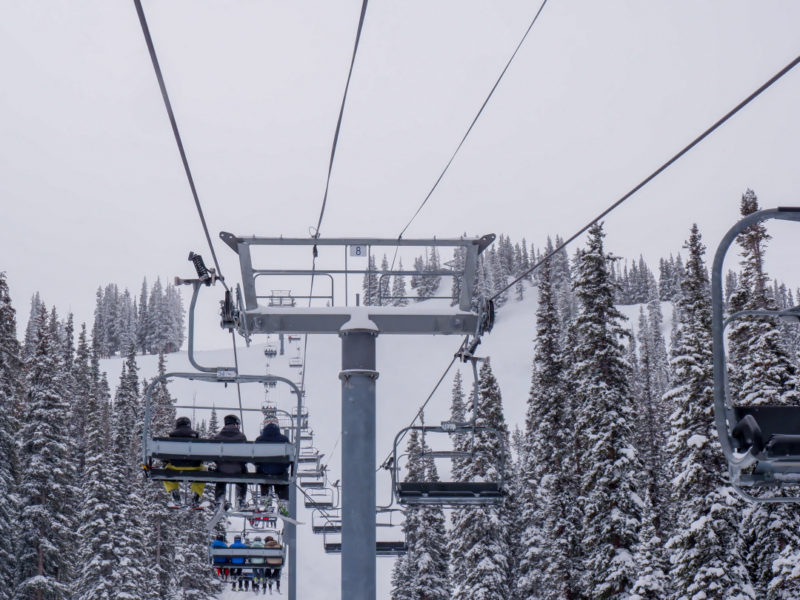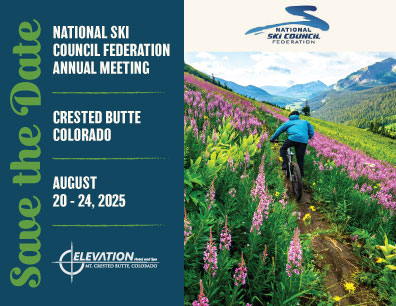
Judge’s forceful rejection of Trump’s ban on visa workers may come too late for Colorado ski resorts
A district court ruling suspends a ban on J-1 and H-2B visa workers, opening doors for ski areas that rely on the seasonal immigrant workers. But resorts that typically have visa employees on deck by fall are seeing surging applications from locals.
Ski areas are cheering a decision by a federal judge in California that suspends the Trump administration’s ban on workers using temporary non-immigrant visas.
The National Ski Areas Association is telling its more than 300 ski resort members to immediately begin taking applications from J-1 and H-2B visa workers and submitting paperwork with the federal government to get those workers in open jobs by year’s end.
“Time is of the essence here,” said the association’s head of regulatory affairs Dave Byrd, noting that it can take eight weeks to get visa applications approved by consulates in the Southern Hemisphere.
U.S. District Court Judge Jeffery S. White earlier this month suspended the Trump visa ban, arguing that “the public interest is served by cessation of a radical change in policy that negatively affects plaintiffs whose members comprise hundreds of thousands of American businesses of all sizes and economic sectors.”
But the suspension may have come too late for ski areas that, by this time of year, typically have hired workers — mostly students from Southern Hemisphere countries like Argentina, Brazil, Australia and New Zealand who use J-1 exchange visas to work at ski areas during their summer season.
Last year in Colorado, 263 sponsor companies hosted 11,131 J-1 visa exchange workers, the second highest number in the West behind California. More than 6,800 of those workers were classified as “summer work travel” exchange visitors who work in the state’s winter resort communities.
Aspen Skiing Co. typically employs a few hundred J-1 visa workers every winter, comprising roughly 10% of the four-resort operator’s winter staff. Other businesses across the Roaring Fork Valley employ J-1 workers as well; mostly students from South America. This year, Aspen Skiing Co. and local businesses are hiring more local high school and college students.
“Our applicant numbers are way up,” Aspen Skiing Co.’s Jeff Hanle said.
The company supported the lawsuits challenging the visa ban and has closely watched the legal wrangling.
Hanle said Judge White’s decision was a step in the right direction but too late for Aspen Skiing Co., which typically has hired and lined up housing and travel for its J-1 exchange workers by October.
“We don’t anticipate it’s going to change things for us this season,” Hanle said.
During the busiest months of the winter, Vail Resorts typically employs several thousand J-1 visa workers at its 34 North American ski areas. This season the focus is on hiring from local communities.
Company spokesman Ryan Huff said the company is “very pleased” with the number of applicants. Vail Resorts has outlined strict safety guidelines — including a reservation system — this season to protect both workers and guests during the pandemic. The company always provides employees with free passes and deeply discounted passes for their dependents, and this season those employee passes are excluded from the mandatory reservation system.
“That perk,” Huff said, “has resonated with applicants. We expect to fill all our required roles as planned as we approach our opening days.” (Vail Resorts’ Keystone ski area this week started making snow with a plan to open Friday, Nov. 6.)
Judge White’s order only applies to businesses that are members of the U.S. Chamber of Commerce as well the National Association of Manufacturers, National Retail Federation, the network of tech companies known as Technet, and Intrax, the union of cultural exchange and educational visa programs.
Many ski areas are members of the U.S. chamber, Byrd said.
“This will have a beneficial impact for ski areas and the ski industry as a whole,” Byrd said.
Possibility of appeal
A similar case challenging the Trump Administration’s ban on temporary visas yielded a different ruling across the country in U.S. District Court in Washington, D.C., where Judge Amit Mehta did not agree that the ban was unconstitutional. Mehta pointed to the 2018 U.S. Supreme Court decision that allowed Trump’s travel ban on seven Muslim-majority countries, arguing that Congress has given the president power to halt immigration if it was detrimental to the interests of the U.S.
White, however, drew a difference between Trump’s Supreme Court-supported ban on visitors from Muslim countries based on international affairs and national security and his ban on visitors for purely domestic economic issues. White dismissed the argument that the visa ban, which Trump said would protect the U.S. economy, was allowed under powers assigned to the president by Congress to protect the country from international threats.
“Indeed, there must be some measure of constraint on presidential authority in the domestic sphere in order not to render the executive an entirely monarchical power in the immigration context, an area within clear legislative prerogative,” White wrote. “Such unrestricted authority would be contrary to Congress’ explicit delegation of powers in foreign affairs and national security.”
White, in his ruling, agreed that the visa ban could result in the disruption of business operations, the closing of open positions, the furlough or laying off of employees, substantial pay cuts, the inability to make capital investments, “and the likelihood that some businesses or cultural programs will have to cease operations altogether.” White dismissed the Trump administration’s argument that the business impacts actually stem from the pandemic and the temporary suspension of visa processing at foreign consulates, calling that argument “patently false.”
White, who noted that the proclamation barred seasonal temporary labor “even in instances in which an employer is unable to fill open position with American workers during the pandemic,” ruled the businesses suing to suspend Trump’s proclamation had shown they will suffer harm as a result of their inability to hire workers from abroad.

The conflicting federal court rulings could set the stage for an appeal of White’s decision to the Ninth Circuit Court of Appeals.
The federal courts could allow the government and consulates to continue processing temporary worker visa applications during the appeal, said Byrd, who wonders if the Trump administration would bother appealing a decision on an order that is set to expire at the end of the year.
“Given the strength of the injunction — telling the president he is not a monarch,” Byrd said, “and because this is not a nationwide injunction, I think the State Department may decide not to appeal.”
Ski areas have reached out to Colorado’s Republican U.S. Sen. Cory Gardner, who serves on the Committee on Foreign Relations, to push the State Department for details on how the government plans to restart the visa application process following White’s ruling.
“We want to reach out to the State Department and say ‘Hey, our ski areas are in rural communities and they are hard hit by the economic crisis and the pandemic and we need action to be taken now,” Byrd said.
“We are ecstatic with the forceful nature of the judge’s order,” Byrd said.
Many Argentinian and other J-1 visa workers from the Southern Hemisphere typically come to U.S. resorts during their 3- to 4-month summer breaks from college. But this year, some colleges in Argentina are extending classes into that summer break to make up for lost time during the pandemic shutdown.
Fernando Vinals, a ski instructor from Argentina, has spent 10 winters teaching at the Squaw-Alpine ski area near California’s Lake Tahoe. He was only able to work for a month at his home resort in Bariloche, Argentina, this summer and was hoping to return to California with an H-2B visa this winter.
“The rules have been changing every day around the world, especially here in Argentina,” Vinals said in an email. “But it might be a gray area for returning to the U.S. It is still uncertain, but my fingers are crossed. If the ban is suspended, we have at least one more chance to get back.”
Posted from The Colorado Sun



